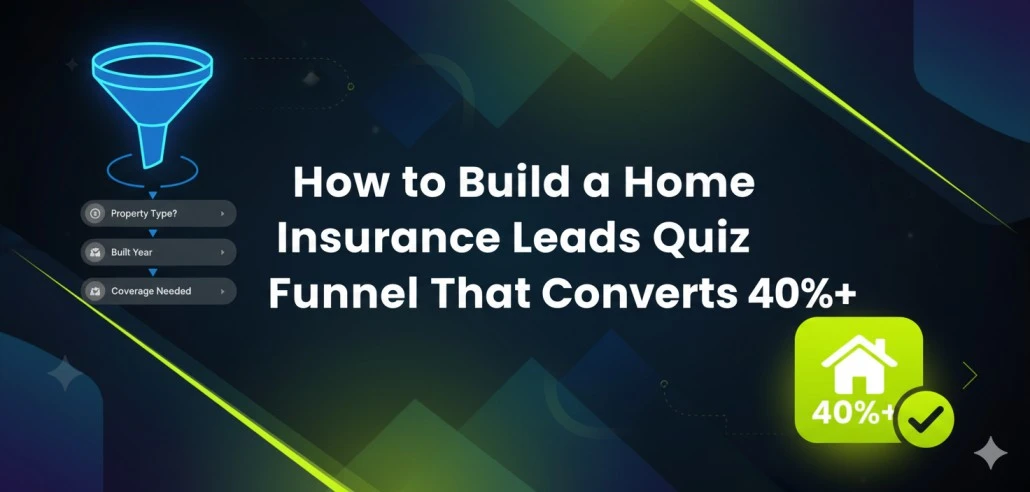The real estate industry is the ultimate people business. There are countless ways to connect with potential clients and build relationships that lead to successful transactions.
While cold calling ranks high among effective lead generation methods, many real estate agents know they shouldn’t rely on just a single lead source for their real estate business.
Rather than aimlessly door-knocking or calling strangers, take the time to explore these proven strategies for generating real estate leads without cold calling.
Jump to Section:
- Digital Marketing Strategies
- Building and Leveraging Your Network
- Client Relationships and Referral Systems
- Developing Strategic Property Owner Lists
- Value-First Approaches and Trust Building
- Targeting Specialized Audiences
- Expired Listings: An Untapped Opportunity
- Creating Strategic Alliances and Partnerships
- Offline Marketing Approaches
- Conclusion
🚀 KEY TAKEAWAYS
- Build Authority Online: Use SEO, landing pages, email marketing, and social media to consistently attract seller leads without picking up the phone.
- Tap into Your Network: Leverage your sphere of influence, client database, and professional contacts for warm referrals and repeat business.
- Reactivate Past Clients: Implement re-engagement campaigns and special client events to revive old leads and get new referrals.
- Target Strategically: Build curated property owner lists to reach landlords, investors, and FSBOs with high conversion potential.
- Lead with Value: Offer free tools, educational webinars, and helpful resources to gain trust before asking for business.
- Specialize for Success: Dominate niche markets like inherited homes, divorces, or tax-delinquent properties with tailored campaigns.
- Convert Expired Listings: Win over frustrated sellers with unique insights and a fresh approach to relisting their property.
- Partner Up: Form alliances with service pros like contractors, lenders, and attorneys who already work with your ideal clients.
- Stay Visible Locally: Use community involvement, direct mail, and offline advertising to boost brand recognition in your farm area.
1. Digital Marketing Strategies
It’s a digital world right now, and if you haven’t jumped into the online bandwagon, then you’re missing out. Here’s what you can do to improve your real estate business through digital marketing:
Optimizing Lead Generation Websites
Your website is often the first point of contact between potential FSBO sellers (For Sale by Owner) and your real estate business, making it a crucial lead-generation tool.
To maximize its effectiveness, you should:
- Create a well-designed site with clear navigation
- Ensure quick load times and mobile responsiveness
- Include compelling calls to action throughout
- Implement user-friendly property search functionality
- Develop mobile-responsive design for on-the-go home searchers
Lead Generation Landing Pages
Creating dedicated lead generation landing pages is a powerful way to convert paid traffic into qualified leads. Unlike your main website, these specialized pages focus on a single objective, which is to capture the contact information of potential clients.
Effective real estate landing pages typically include:
- A compelling headline addressing a specific need (e.g., “Find Out What Your [Neighborhood] Home Is Worth Today”)
- Limited navigation options to keep visitors focused on your conversion goal
- Strong value proposition explaining why visitors should provide their information
- Short, focused form collecting only essential contact details
- Trust indicators such as testimonials, credentials, or partnership logos
- Clear, prominent call-to-action buttons using action-oriented language
Want More Seller Leads Without Cold Calling?
A high-converting landing page can help you attract motivated sellers while you sleep. No cold calls. No awkward follow-ups. Just real results from the right strategy.
They even offer templates specifically made for real estate agents. Their page builder is simple to use, too. You just drag and drop elements where you want them. No need to know any coding to make changes to your pages.
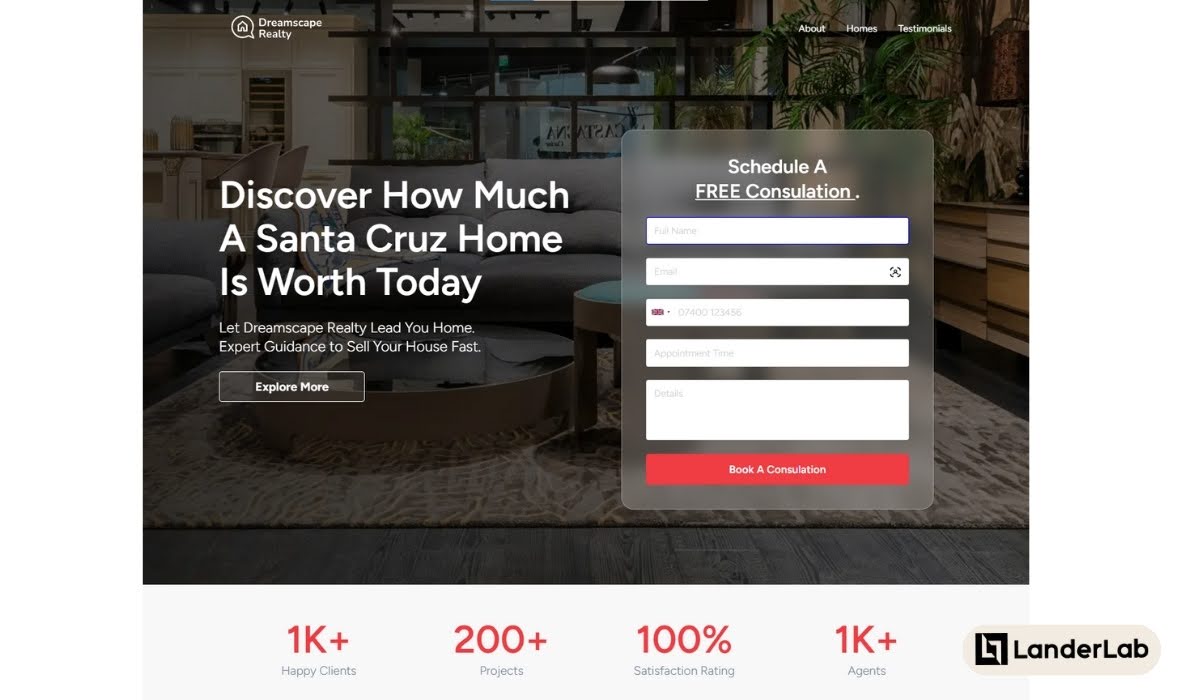
Real Estate Landing Page Template
To get the best results, make different landing pages for each of your marketing campaigns. Each page should speak directly to a specific group of people or focus on a certain type of property, and its landing page layout should guide visitors toward action without distractions.
When you use this focused approach, you’re more likely to turn visitors into clients. In fact, these targeted pages usually convert 3-5 times better than sending everyone to your main website.
Essential Landing Page Types for Real Estate
Different objectives require specialized landing pages. Consider developing these high-converting page types:
- Home Valuation Landing Pages: Offer free, instant property value estimates in exchange for contact information. These pages typically convert at higher rates than general real estate landing pages because they provide immediate value.
- Buyer’s Guide Landing Pages: Provide comprehensive resources for first-time homebuyers or investors in exchange for contact details. These pages position you as an educational resource rather than just a salesperson.
- Neighborhood Guide Landing Pages: Create dedicated pages showcasing specific neighborhoods with insider information that can’t be found on general listing sites. This establishes you as a local expert.
- Property-Specific Landing Pages: For premium listings, create dedicated landing pages that go beyond standard MLS information, offering virtual tours, neighborhood insights, and lifestyle benefits.
- Niche Market Landing Pages: Develop specialized pages targeting specific audience segments like luxury buyers, investors, or first-time homebuyers with content tailored to their unique needs.
Advanced SEO Strategies for Real Estate Websites
Implementing proper search engine optimization is essential for attracting organic traffic:
- Local SEO: Optimize for location-based keywords like “[city name] homes for sale” or “real estate agent in [neighborhood]”
- Google My Business: Maintain an updated profile with accurate information, photos, and client reviews
- Backlink Building: Develop relationships with local businesses and community organizations for valuable inbound links
- Schema Markup: Implement real estate-specific structured data to enhance property listing visibility in search results
- Mobile Optimization: Make sure your site performs flawlessly on smartphones and tablets, as over 60% of real estate searches now occur on mobile devices
A simple Google search of your local competitors can reveal SEO opportunities you might be missing. Look for keywords they rank for and identify gaps in their content strategy that you can fill with your expertise.
Content Marketing for Real Estate
SEO Blogging for Long-Term Lead Generation
Creating regular, valuable content through blogging represents a strategic, long-game investment in your real estate business. Consistent weekly publishing accomplishes two critical objectives: attracting your target audience and demonstrating your expertise to search engines.
Effective blog content categories include:
- Real Estate Market Analysis: Provide regular market updates on local trends, including price movements and interest rates implications
- Transaction Guidance: Deliver practical advice for both buyers and sellers
- Success Stories: Document client journeys through detailed case studies
- Community Spotlight: Create comprehensive neighborhood guides featuring local businesses
- Investment Education: Share insights on real estate investing fundamentals
- Value-Adding Improvements: Discuss renovation projects that enhance property value

Real Estate Blog Example (Zillow)
Email Marketing Strategies
Email marketing continues to deliver exceptional value in today’s digital landscape, offering an impressive $44 return for every $1 invested. Its primary purpose is to nurture relationships digitally.
Optimization techniques include:
- Conversion Strategy: Transform subscribers into clients through personalized messaging
- Action-Oriented Content: Include clear calls-to-action that guide recipients toward specific next steps
- Audience Alignment: Ensure CTAs match recipient interests and needs to maximize conversion potential
- Automated Campaigns: Implement drip sequences for different client types (first-time buyers, sellers, investors)
- Re-engagement: Create campaigns specifically for reconnecting with past clients
By consistently implementing these blogging and email marketing efforts, you can build meaningful digital relationships that generate more listings without traditional cold outreach.
Leveraging Social Media
Social media represents a fantastic way for real estate professionals to connect with potential clients in the internet age. These platforms are essentially digital networking events where consistent participation and authentic engagement can build valuable relationships over time.
Platform Selection and Strategic Focus
Not all social media platforms deliver equal results for real estate professionals. Consider these platform-specific advantages:
- Facebook: This platform has more than 2.8 billion people who use it every month, reaching the widest range of different groups of people. Its detailed targeting tools let you show ads to specific homeowners based on their age, income levels, life stages, and zip codes.
- Instagram: This platform focuses on photos and videos, making it great for showing properties you’re selling, neighborhood highlights, and lifestyle content. You can use Instagram Stories to share casual, everyday moments, which helps people see the real person behind your business.
- LinkedIn: This platform is more than just for connecting with other professionals. LinkedIn groups have become places to share expert content. You can post articles that show your deep knowledge of real estate, which is especially useful if you work with commercial real estate or high-end properties.
- YouTube: Video tours, neighborhood spotlights, and educational content about the buying or selling process can establish your expertise while providing valuable information potential clients seek before contacting an agent.
Choose platforms that align with your target demographic and personal strengths. It’s better to excel on two platforms than to have a mediocre presence across all of them.
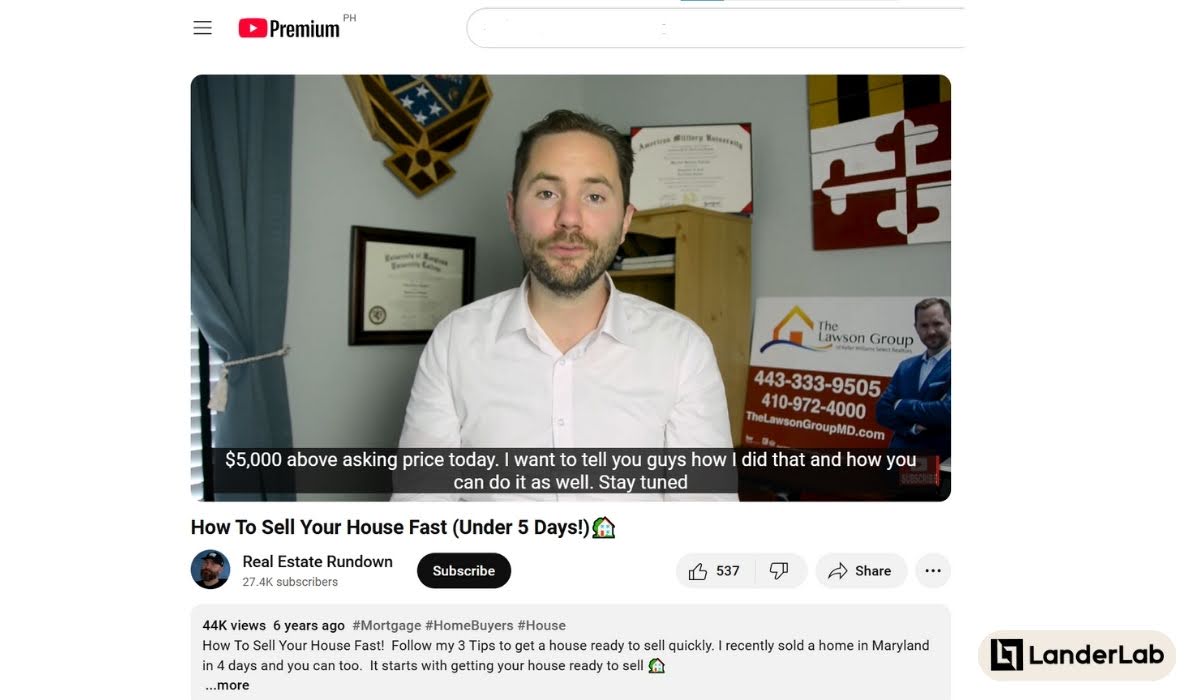
Real Estate Social Media Video
Digital Prospecting Techniques
Even without a large follower base, you can implement effective “Digital Prospecting” methods:
- Dedicate one hour each morning to reviewing 10 social media profiles
- Look for life event indicators suggesting potential moves (job changes, family expansions, too many repairs needed)
- Engage authentically with meaningful comments
- Suggest in-person meetings rather than making direct sales pitches
- Focus conversations on understanding needs before discussing real estate
Reviewing just 10 profiles daily creates over 2,500 potential interactions annually—each representing possible listing opportunities without cold calling.
2. Building and Leveraging Your Network
Engaging with Your Sphere of Influence
Your sphere of influence represents a gold mine available to you as a real estate agent, regardless of how long you’ve been in the real estate industry. This personal network includes family, friends, past clients, and business connections who already know, like, and trust your capabilities.
Maintaining consistent contact with these people can create easy repeat and referral business throughout your entire career. When interacting with your sphere:
- Keep conversations casual and non-invasive—more natural and less “salesy”
- Contact these individuals at least twice a year, with quarterly check-ins for important relationships
- Use the “Ask, Listen, Engage” approach to make connections feel natural
- Look for organic opportunities to mention your real estate business rather than forcing the topic
Leveraging Special Occasions and Life Events
The most effective sphere of influence marketing aligns with natural touchpoints in people’s lives. Consider these opportunities:
- Home Purchase Anniversaries: Send personalized notes or small gifts on the anniversary of clients’ home purchases
- Major Holidays: Create themed marketing pieces that provide actual value rather than just promotional content
- Life Milestones: Acknowledge significant events like marriages, births, and graduations with thoughtful gestures
- Seasonal Changes: Offer seasonal home maintenance tips or neighborhood updates as seasons change
The key difference between effective sphere marketing and intrusive outreach is the genuine value and personalization you provide. Generic mass mailings will likely be discarded, while thoughtful, personalized communication strengthens relationships and keeps you top-of-mind.
Professional Networking for Lead Generation
Strategic networking builds authentic relationships that generate quality new leads without cold calling. Position yourself as a community connector by consistently participating in local gatherings and professional events.
Creating a Consistent Networking Routine
- Commit to attend community events weekly
- Collect contact information from new connections
- Establish digital connections through social media platforms
- Send personalized follow-up messages after networking events
Specialized Networking Opportunities
- Professional Conventions: Connect with both potential buyers and industry colleagues
- Business Masterminds: Engage with investors and professionals seeking to expand portfolios
- Award Recognition: Proactively seek nomination for industry accolades
- Collaborative Promotion: Establish referral relationships with complementary specialists
- Strategic Partnerships: Develop relationships with non-competing professionals

Real Estate Trade Show
Networking Conversation Starters
Many real estate agents struggle with initiating meaningful conversations at networking events. Instead of immediately discussing business, try these relationship-building conversation starters:
- “What brings you to this event?”
- “Have you attended any similar events recently that you enjoyed?”
- “What’s the most interesting project you’re working on right now?”
- “What’s your connection to this community/organization?”
- “I’m looking to try a new local restaurant – any recommendations?”
These questions create natural openings for genuine conversation while avoiding the awkwardness of immediate business discussions. As the conversation progresses, you can gradually transition to real estate topics when appropriate.
Community Engagement and Charitable Involvement
When you show that you care about your community as a real estate agent, you create natural ways to find new clients. This happens because more people see you around and know your good reputation.
Effective Community Approaches
- Participate actively in local organizations to generate word-of-mouth referrals
- Offer complimentary consultations for charitable organizations
- Leverage charitable donations that often include reciprocal website links
- Create special incentives for referrals from charitable causes
- Attend community events with the primary goal of building authentic connections
- Focus on meaningful conversations during events rather than direct selling
Strategic Community Involvement
Rather than spreading yourself thin across a number of community activities, focus your involvement strategically:
- Align with Your Interests: Choose causes and organizations that truly matter to you. When you care deeply about something, people will notice your genuine interest. This makes them more likely to remember your involvement.
- Commit Deeply to Fewer Causes: Instead of joining many organizations with little involvement, focus on being deeply involved in one or two causes. This allows you to make a real difference and build stronger connections within these groups.
- Seek Leadership Roles: When you’re ready, take on leadership roles like committee or board positions. These roles help more people see your work and show how dedicated you are to the cause.
- Connect Your Real Estate Expertise: Look for ways to use your real estate knowledge to help these organizations. For example, you could help a nonprofit find new property options or give advice on how to improve their buildings.
- Document Involvement Tastefully: Share your community work on social media and your website, but do it carefully. Focus on highlighting the cause and its impact rather than promoting yourself. This shows you’re genuinely committed to helping the community.
Being active in your community helps you build a network of people who trust you. These people will then recommend you to others who need a real estate agent.
Keep in mind that business connections grow stronger when people know you well, like you, and trust you. These qualities develop when you interact with people in a real and sincere way.
3. Client Relationships and Referral Systems
Client Retention and Reactivation
Your past clients represent a valuable resource for both repeat business and referrals with very low acquisition cost. In essence, they’re a private gold mine waiting to be tapped.
Reconnection Techniques
- Initiate contact through a home value update offer via text, email, or social media
- Maintain regular communication with recent clients through quarterly check-ins
- Incorporate past clients into your standard follow-up system
- Host special events specifically for past clients and their networks
- Utilize email marketing, holiday communications, and social media to maintain ongoing relationships
Building a Systematic Referral Program
Referrals (recommendations from past clients or contacts) are key to growing a lasting real estate business. When someone is referred to you, they already trust you because of the person who recommended you. This makes it much easier to turn them into clients compared to people who don’t know you at all (cold leads).
Research from the National Association of REALTORS® shows how important referral marketing is, with these statistics:
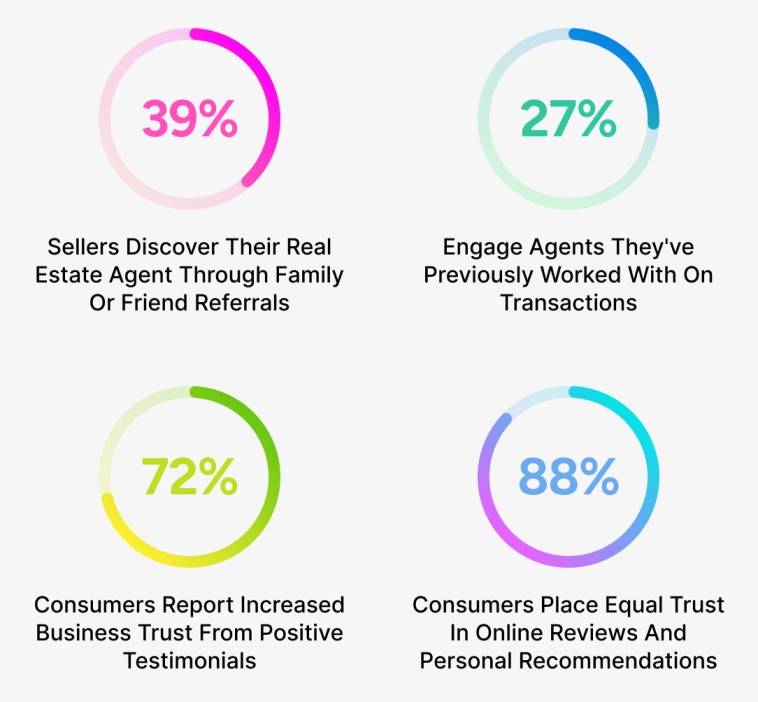
Referral Marketing Stats
Implementing Effective Referral Systems
- Direct Referral Requests: Proactively communicate your availability for new business through post-transaction follow-ups, regular check-ins, and anniversary messages
- Structured Incentive Programs: Develop formal referral reward systems with clear benefits like gift cards to local businesses or service discounts
- Testimonial Collection: Systematically gather written testimonials, online reviews, and client stories to share across marketing channels
- Ongoing Engagement: Maintain consistent connection with past clients through valuable email newsletters and personalized communications
- Referral Codes: Implement structured programs that track and reward referrals with benefits for both existing and new clients
Creating a strong referral system takes time and regular effort. However, once it’s working well, your business will keep growing without having to rely on reaching out to strangers.
4. Developing Strategic Property Owner Lists
If you’re interested in targeting specific property segments, such as multifamily owners with properties of seven units or fewer, you can create customized lists filtered by property size, type, and location.
You can find property owner information in two ways:
- Through your local county clerk’s website
- By searching for the “Records Department” online
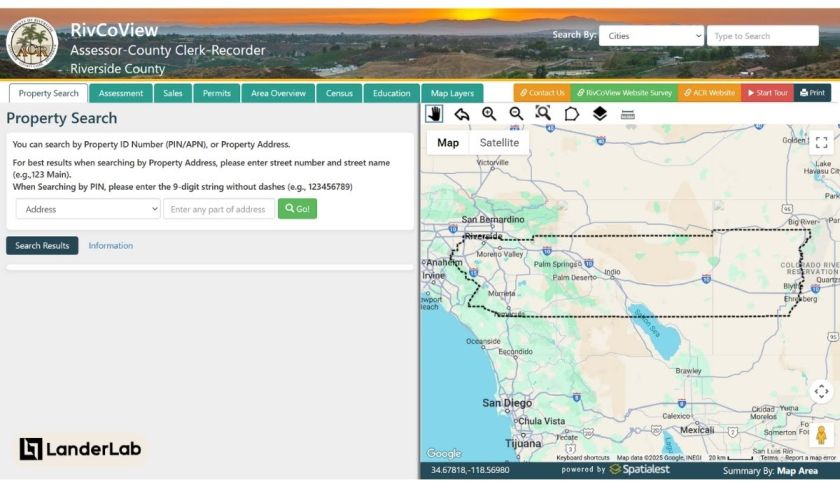
Real Estate Local Records
These databases can be hard to use. But there are companies that take this public information and organize it in ways that are easier to understand and use.
These resources can provide:
- Owner contact information
- Loan details, including property taxes
- Property Specifications
- Decision-maker information (where permitted by state law)
Some advanced services use special computer programs (predictive algorithms) to find people who are likely to sell their property soon. These programs look at different factors to spot possible motivated sellers. This helps you reach out to these owners before they choose another real estate agent.
Once you’ve built your list, sending traffic to niche-specific lead capture landing page examples can help convert those property owners into qualified seller leads.
5. Value-First Approaches and Trust Building
The old ways of selling real estate don’t work as well anymore. Today’s buyers and sellers don’t like aggressive sales tactics.
Instead, people respond better when you offer them real help and value first. This means you should:
- Give them helpful information
- Solve their problems
- Share your knowledge
Before asking someone to work with you, focus on helping them.
This strategy works for two reasons. First, it helps people trust you. Second, it shows them you’re an expert who wants to help, not just make a sale.
When you give potential clients something useful—like insights about the real estate market, content that teaches them something new, or helpful tools—they’re more likely to think of you when they need to buy or sell property.
There’s also a natural behavior that helps make this work: when people receive something valuable, they usually want to give something back. This is called the principle of reciprocity (the natural desire to return a favor).
Free Resource Offerings
Establish your credibility by providing valuable information before pitching services. Share helpful tips, recommend relevant content, or offer practical tools that assist in the selling process.
Webinars as Value Delivery Tools
Webinars offer an excellent alternative to cold calling. They efficiently connect you with multiple potential clients while generating immediate leads and creating reusable content for your digital platforms.
Demonstrate how your process directly addresses client challenges, naturally encouraging ready-to-act prospects to initiate the process.
- Begin by offering webinars to existing clients, which provides practice while potentially rekindling relationships
- Expand your reach through email marketing campaigns and targeted advertising on platforms like Facebook and Google Ads
- Consider Zoom’s webinar functionality for its comprehensive features, including automated email sequences
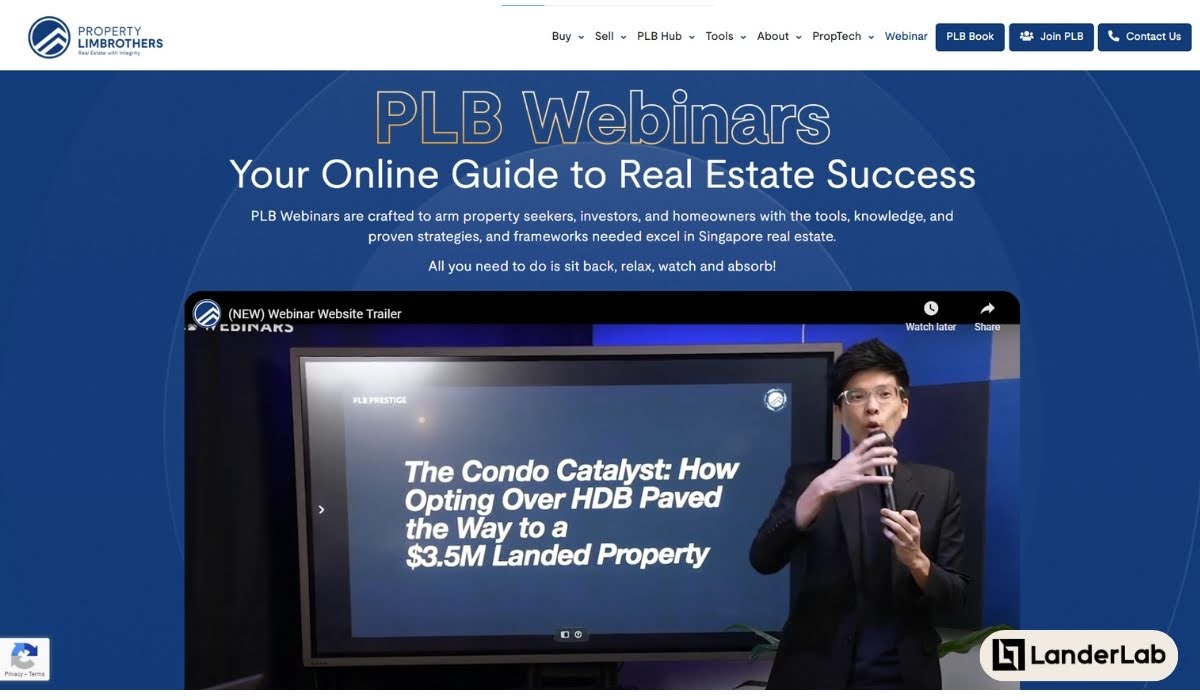
Real Estate Webinars
Open House Opportunities
The open house remains a tried and true method for generating leads without cold calling, offering face-to-face interaction with potential clients.
To maximize open house effectiveness, you should:
- Market your events through multiple channels (email marketing, direct mail campaigns, door knocking, social media, neighborhood campaigns)
- Engage meaningfully with all attendees, recognizing each person as a potential client or referral source
- Implement systematic follow-up with attendees and incorporate them into long-term nurture campaigns
- Attend other agents’ open houses to expand your professional network and establish collaborative relationships
Building Trust Through Social Proof
When past clients share good things about working with you (testimonials and reviews), it helps you get new clients. These positive comments show people that you are honest and trustworthy.
You should create a regular way to collect feedback from happy clients. You should also have a plan for sharing these good reviews. This does two things: it proves to people that you’re reliable, and it helps bring in new business naturally.
Systematic Review Collection
Following each successful transaction, request that clients share their experience by leaving a review. Simplify this process by providing direct links to your profiles on relevant platforms such as Google, Zillow, and other industry-specific sites.
Strategic Presentation of Social Proof
- Dedicate a prominent section of your website specifically for client testimonials
- Feature compelling success stories with client photos whenever possible for authenticity
- Share endorsements across social media platforms, email newsletters, and direct mail campaigns
- Create video testimonials for higher engagement and credibility
Consistently gathering and strategically showcasing positive client feedback establishes powerful social proof that builds trust with potential clients, eliminating the need for intrusive cold calling.
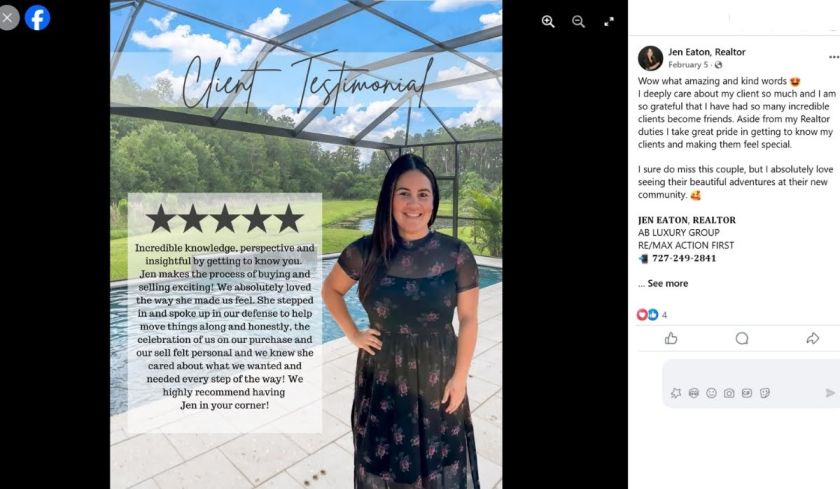
Real Estate Client Testimonials
6. Targeting Specialized Audiences
Identifying Niche Audiences
There’s significant value in focusing on specialized market segments. Focusing on smaller groups of customers with specific needs can help you grow your business steadily. This approach can also lead to bigger sales over time.
Many agents try to serve all types of customers. However, focusing on one specific part of the real estate market can set you apart from other agents. This focus also helps you market your services more effectively.
Consider these benefits of niche specialization:
- Focused Expertise: Developing deep knowledge in a specific area makes you the go-to expert for clients with those particular needs
- More Efficient Marketing: Targeted campaigns to specific groups yield higher conversion rates than general marketing
- Reduced Competition: Specialized markets often have fewer agents actively pursuing them
- Higher Transaction Values: Many niche markets involve higher-than-average transaction sizes
- Word-of-Mouth Referrals: Becoming known for a specialty increases targeted referrals from both clients and other agents
When selecting a niche, consider both market opportunity and your personal interests. Your enthusiasm for a particular specialty will shine through in client interactions, making your expertise more authentic and compelling.
Strategic Niche Markets
Divorcing Couples
When couples sell due to divorce, it often necessitates property transitions—whether selling shared homes or acquiring new residences. These clients are frequently motivated sellers, sometimes under court mandate.
A Few Ideas on Effective Outreach:
- Targeted Facebook advertising campaigns focused on individuals who identify as divorced or separated
- Custom landing pages designed to collect contact information
- Refined demographic targeting that excludes newly married or engaged individuals
Inherited Homes
The ongoing “great wealth transfer” from baby boomers to their children represents a significant market opportunity, with approximately $6 trillion in assets shifting in the coming decades. Many former property owners have little interest in maintaining inherited homes, preferring liquidation.
Approach Considerations:
- Maintain respectful timing, allowing at least three months after bereavement
- Research local cases through county records
- Offer specialized “inherited house packages” with services beyond standard sales
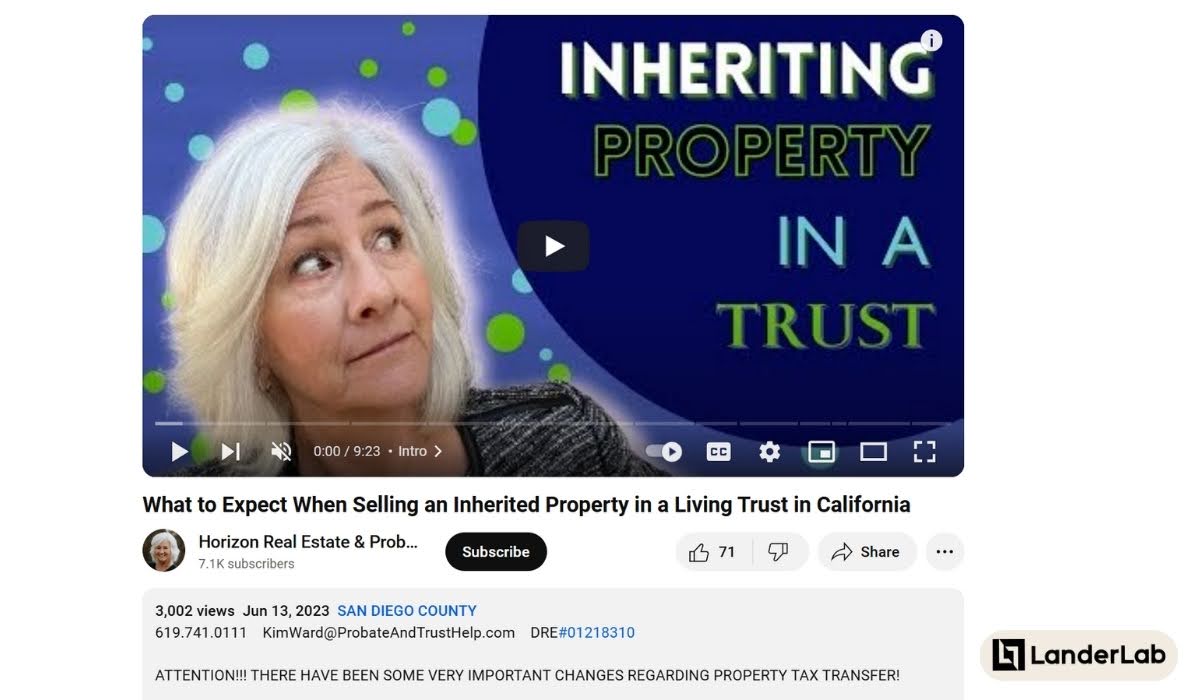
Real Estate Niche Markets
Homes with Tax Delinquency
Property owners behind on property taxes often become motivated sellers facing specific timelines and financial pressures.
Marketing Approaches:
- Direct mail campaigns to addresses identified through public tax records
- Targeted search engine marketing using specific keyword phrases
- Lower competition keywords that may provide better value than generic high-volume terms
7. Expired Real Estate Listings: An Untapped Opportunity
Many real estate agents overlook expired listings as a valuable lead source that doesn’t require traditional cold calling approaches. These properties represent motivated sellers who have already committed to selling but weren’t successful with their previous agent.
Approaching Expired Listings Strategically
Rather than making a direct cold call, consider these alternative approaches:
- Value-First Mail: Send a customized market analysis addressing specific reasons the property might not have sold
- Educational Resources: Provide a detailed guide on “Why Homes Don’t Sell and How to Fix It” that showcases your expertise
- Social Media Targeting: Create tailored ad campaigns specifically addressing challenges of previously listed homes
- Neighborhood Expertise: Demonstrate specific knowledge about their community and recent comparable sales
- Differentiation Package: Present a clear marketing plan highlighting what you’ll do differently from their previous agent
When reaching out to expired listings, focus on what you can offer rather than immediately asking for the listing. By leading with value and addressing their specific situation, you position yourself as a problem-solver rather than just another agent looking for business.
8. Creating Strategic Alliances and Partnerships
Developing professional relationships with key service providers in your local area offers an effective alternative to cold calling. You can establish a consistent flow of qualified leads by cultivating connections with individuals who naturally interact with potential buyers and sellers.
Service Providers with Direct Client Access
- Residential Locksmiths: These professionals regularly assist both new homeowners and individuals preparing properties for sale
- Financial Lending Specialists: Loan officers maintain lists of pre-approved buyers actively searching for properties
- Home Improvement Professionals: Contractors and painters frequently work with homeowners enhancing properties before listing
- Property Inspection Experts: Inspectors participate in transactions at critical decision points for both parties
- Legal Representatives: Real estate attorneys oversee transaction details and can recommend reliable agents
- Rental Property Specialists: Property managers build relationships with investment property owners who may eventually sell
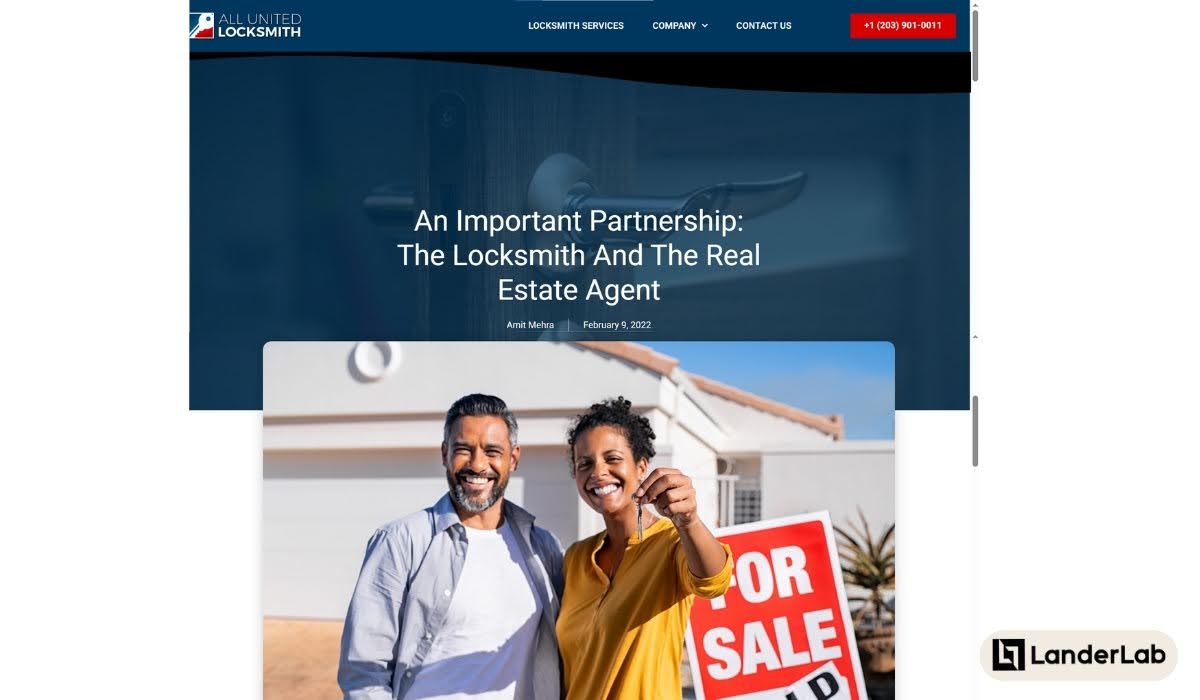
Real Estate Agent Partnership with Locksmith
Relationship-Building Strategies
- Prioritize Giving: Demonstrate commitment by referring clients to your partners before expecting reciprocation
- Maintain Contact: Schedule periodic check-ins through brief calls, messages, or informal meetings
- Develop Collaborative Marketing: Create shared promotional opportunities, including educational events and co-branded materials
- Provide Industry Insights: Share relevant market analysis and trends that benefit your partners’ businesses
- Demonstrate Consistent Reliability: Build trust through dependable service, following through on commitments, and maintaining professional standards
By systematically developing these strategic alliances, you create an interconnected network of trusted professionals generating mutual referrals.
9. Offline Marketing Approaches
Offline marketing remains a powerful alternative to cold calling. Strategic placement of advertisements in local media and public spaces can significantly enhance your visibility and credibility.
Effective Offline Marketing Channels
Billboard Advertising
Position striking billboards in areas with heavy traffic flow to create memorable impressions on potential sellers.
Print Media Presence
Invest in advertising space within local newspapers and magazines, which continue to reach a substantial audience of established homeowners.
Community Connections
Post informative flyers on community bulletin boards in grocery stores, libraries, and coffee shops to establish connections with local residents.
Transit Advertising
Place advertisements on bus benches and at transit stops for high visibility to pedestrians and drivers throughout the day.
Targeted Direct Mail Campaigns
Send postcards or newsletters to specific neighborhoods. This keeps your name fresh in the minds of potential sellers. Direct mail is still one of the best ways to reach property owners in specific areas.
Local Involvement
Help with community events, sports teams, or charitable activities. This builds positive local recognition and trust.
Using different offline marketing methods helps you reach more people and strengthens your presence in the community.
Conclusion
Cold calling can work, but it takes a lot of time and energy. Experienced real estate agents know there are many other ways to get real estate listings without cold calling.
Using different methods helps you create a varied lead system that helps your business grow steadily. Each method has its own benefits, and the most successful agents use several methods at once.
When you add these techniques to your business plan step by step, two things happen. First, you’ll get a steady flow of qualified leads. Second, you’ll build real relationships that make your professional reputation stronger.
Many agents find that mixing two types of strategies works best:
- Digital strategies (website optimization, social media, email marketing)
- Traditional approaches (community involvement, partnerships, direct mail)
This balanced mix helps you connect with potential clients in many different ways.
Remember that getting leads is just the first step. Having a system to follow up with leads is just as important. The best real estate agents don’t just get more leads—they turn more of those leads into clients. They do this by following up consistently and offering real value.
The most important things are being consistent and genuine. Focus on giving real value to your community and professional network. Over time, these efforts will grow stronger. They’ll create a self-supporting system of referrals and opportunities. This eliminates the need to make cold calls at all.
By using these proven methods, you’ll build a successful real estate business. It will be based on relationships and reputation instead of relying on interruption-based marketing.





